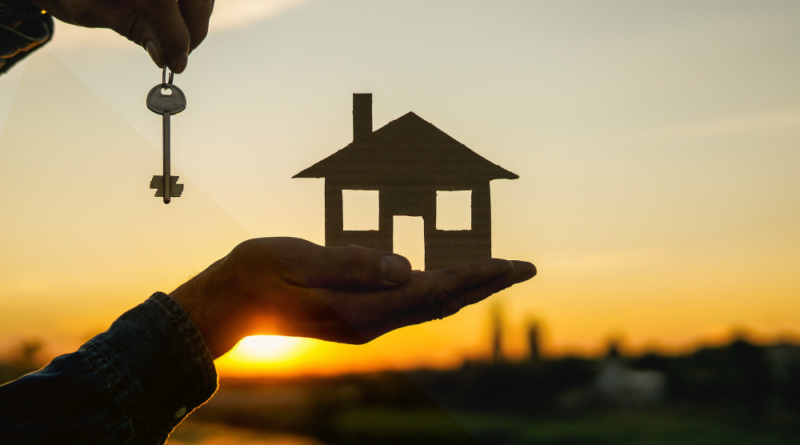The Dynamic Role of Real Estate Developers in Property Development
Introduction
The real estate landscape is a canvas where vision and execution blend seamlessly to create the living spaces of our dreams. At the heart of this creative process stand real estate developers, the masterminds who orchestrate the transformation of raw land into vibrant communities and architectural marvels. In this article, we delve into the dynamic role of real estate developers, the key characteristics to seek in a developer, and the myriad advantages of partnering with these industry visionaries.
The Role of Real Estate Developers: Crafting Tomorrow’s Communities
Real estate developers play a pivotal role in shaping the physical and cultural landscapes of cities and neighborhoods. Their multifaceted responsibilities encompass conceptualization, planning, financing, construction, and marketing. Here’s a closer look at their role:
Visionaries and Conceptualizers
Developers breathe life into empty plots by conceptualizing unique projects that resonate with the needs and desires of potential inhabitants. Their vision often shapes the entire project, dictating design, functionality, and purpose.
Master Planners
Developers transform concepts into detailed plans, considering zoning regulations, environmental impacts, infrastructure requirements, and urban design principles. Their expertise ensures that projects are not only aesthetically pleasing but also compliant with regulations.
Financial Strategists
A critical aspect of a developer’s role involves securing financing for the project. They liaise with investors, lenders, and financial institutions to ensure the necessary funds are available for land acquisition, construction, and other expenses.
Project Managers
Developers oversee every phase of the project, from groundbreaking to completion. They coordinate architects, contractors, engineers, and various stakeholders to ensure the project stays on schedule and within budget.
Risk Mitigators
Real estate development is not without risks. Developers are skilled at identifying potential challenges and mitigating them through thorough risk assessment and management strategies.
Community Builders
Developers have a profound impact on the communities they create. They consider the needs of future residents and design spaces that foster connectivity, inclusivity, and a sense of belonging.
Characteristics to Look for in a Real Estate Developer
Choosing the right developer for your project is crucial to its success.
Here are key characteristics to consider:
Experience and Track Record
A developer’s experience is a testament to their ability to navigate challenges and deliver successful projects. A strong track record demonstrates their credibility and expertise.
Vision and Creativity:
Look for a developer who can envision the potential of a property and translate it into a captivating project. Creative thinking ensures the uniqueness and appeal of the development.
Market Knowledge:
A developer with a deep understanding of local market trends, demand, and supply dynamics is better positioned to create projects that align with market needs.
Financial Acumen:
Real estate development involves complex financial negotiations and decisions. A developer with financial savvy can secure funding and manage budgets effectively.
Collaborative Spirit:
Developers collaborate with various professionals and stakeholders. A collaborative attitude fosters smoother communication and better project execution.
Advantages of Collaborating with a Real Estate Developer
Partnering with a real estate developer offers a range of benefits that extend beyond the mere construction of physical structures. Let’s explore these advantages in detail:
Expertise and Knowledge:
Developers bring a wealth of industry knowledge to the table. Their insights into market trends, construction techniques, and regulatory requirements can guide your project toward success.
Mitigated Risks:
Real estate development involves various risks, including regulatory changes, construction delays, and budget overruns. A skilled developer has the experience to anticipate and manage these risks, reducing uncertainties for you.
Network and Relationships:
Developers often have established relationships with architects, contractors, suppliers, and other professionals. These connections can streamline the project’s execution, leading to smoother collaboration and potentially lower costs.
Time Efficiency:
Developing a property from scratch requires significant time and effort. A developer’s experience in project management can accelerate the process, getting your project off the ground faster.
Cost Savings:
Developers possess in-depth knowledge of construction costs, material prices, and labor expenses. This insight can help control expenses, optimize budget allocation, and prevent cost overruns.
Access to Funding:
Developers have access to a network of financial institutions, lenders, and investors. Their ability to secure funding can make your project financially viable and reduce the burden of raising capital on your own.
Design Innovation:
Developers are often at the forefront of design trends and innovations. Their input can elevate the aesthetics and functionality of the project, enhancing its appeal to potential buyers or tenants.
Compliance and Regulations:
Navigating through local zoning laws, building codes, and regulatory requirements can be daunting. A developer’s familiarity with these intricacies ensures that your project stays compliant and avoids costly legal pitfalls.
Holistic Project Management:
Developers oversee every aspect of the project, from site selection to completion. Their holistic approach ensures seamless coordination among various parties, resulting in a more efficient and integrated development process.
Tailored Solutions:
Specialized developers can tailor projects to specific niches, such as luxury homes, eco-friendly residences, or commercial spaces. This specialization creates opportunities for unique value propositions that cater to niche markets.
Conclusion
The role of a real estate developer extends far beyond construction; it’s about creating vibrant communities, iconic landmarks, and functional spaces that stand the test of time. As you embark on your real estate journey, remember to carefully evaluate developers based on their experience, expertise, and reputation. Collaborating with the right developer can transform your vision into reality, mitigating risks, and enhancing the overall success of your project.
Whether you’re a seasoned investor, a first-time homebuyer, or a business looking to expand, working with a real estate developer opens doors to a world of opportunities, innovation, and growth. Their passion for creating inspiring spaces aligns with your aspirations, resulting in a partnership that turns dreams into tangible, thriving developments.
So, as you embark on your real estate endeavours, consider the guiding hand of a skilled real estate developer—your partner in crafting the future of our built environment.
As the saying goes, “To build is to dream, and to develop is to make that dream a reality.”




